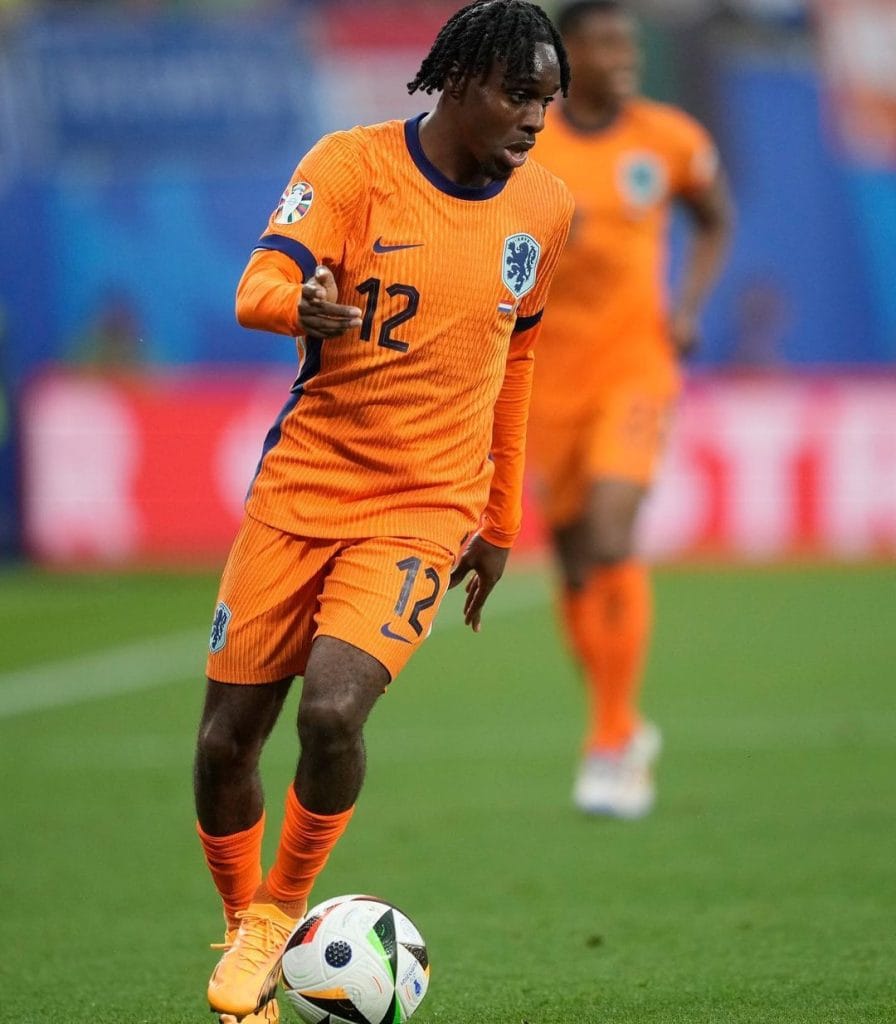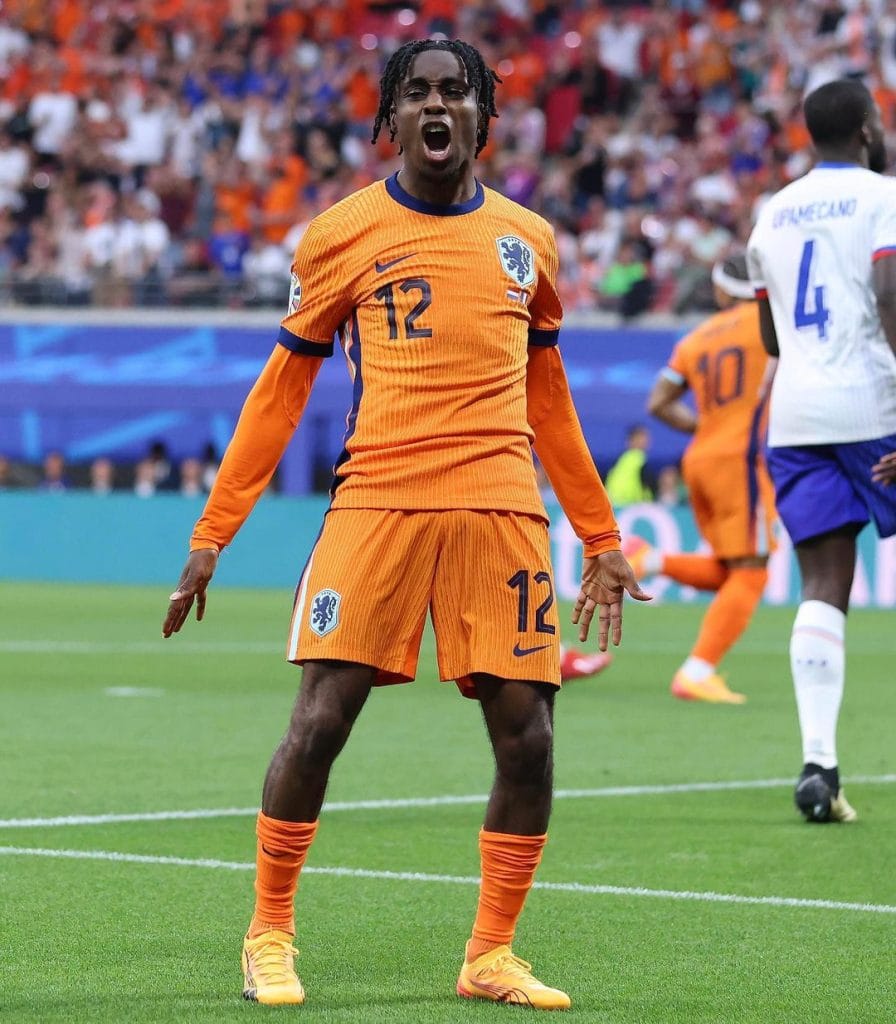Jeremy Frimpong: Navigating Identity and Language in International Football

Jeremy Frimpong, a talented right-back who currently plays for the Netherlands national team and German side Leverkusen, has been at the center of what I tag “linguistic controversy”. Born in the Netherlands, Frimpong moved to England at the age of seven, where he spent most of his formative years. Despite his Dutch heritage, his time in England has resulted in him being more comfortable with English than Dutch. This language barrier has sparked debates, particularly when Frimpong did not sing the Dutch national anthem, leading to criticism from some fans and pundits.
This incident raises important questions about the role of language in international sports and the expectations placed on athletes representing their countries.
The Importance of Speaking the National Language
In international football, speaking the national language can play a significant role in fostering unity and cohesion within the team. Language is a powerful tool for communication, both on and off the pitch. It helps players understand tactical instructions, build rapport, and connect with the fan base. For a player like Frimpong, who represents the Netherlands, the ability to speak Dutch can be seen as a symbol of national pride and commitment to the country.


Moreover, language can be a bridge between the player and the fans. Football fans are known for their passionate support, and they often view the national team as a representation of their collective identity. When a player speaks the national language, it reinforces their connection to the country and its people.
This is particularly significant during national anthems, which are symbolic moments that evoke a sense of unity and patriotism. Frimpong’s silence during the Dutch national anthem might have been interpreted by some as a lack of respect or commitment, hence sparking the controversy.
au contraire- Why Language Should Not Be a Barrier
However, viewing this through a different lens. Football, after all, is a global game that transcends linguistic and cultural barriers. Players are often part of multicultural teams where a variety of languages are spoken, and the lingua franca is typically the sport itself. Skills, dedication, and performance on the field are what truly matter.
Frimpong’s upbringing in England means that English is his first language, a situation not uncommon in the multicultural world of modern football. Many players represent countries different from where they grew up or where they currently play their club football.
The focus should ideally be on their abilities and contributions to the team rather than their linguistic proficiency. In Frimpong’s case, his selection for the Netherlands national team is based on his exceptional talent and potential to strengthen the squad, which should be the primary consideration.

Additionally, the backlash against Frimpong for not singing the national anthem overlooks the personal and emotional complexities of identity. For someone who has spent a significant part of their life outside the country they represent, navigating dual identities can be challenging.
Frimpong’s choice to play for the Netherlands demonstrates his connection to his birth country, even if he is not fluent in Dutch. His decision to represent the Netherlands should be celebrated as a testament to his versatility and willingness to embrace his heritage.
Final Words
Jeremy Frimpong’s situation highlights the nuanced relationship between language, identity, and representation in international football. While speaking the national language can enhance team unity and fan connection, it should not overshadow a player’s abilities and commitment. In a sport that celebrates diversity and transcends borders, the focus should remain on the contributions players make on the field. Frimpong’s journey is a reminder that identity is multifaceted, and embracing a player’s full story can lead to a richer, more inclusive understanding of what it means to represent a nation.
.png)






